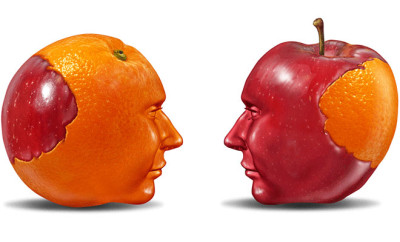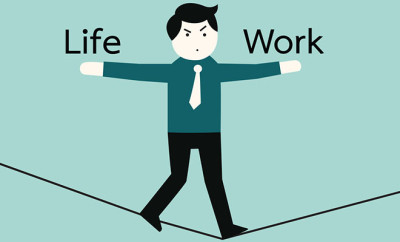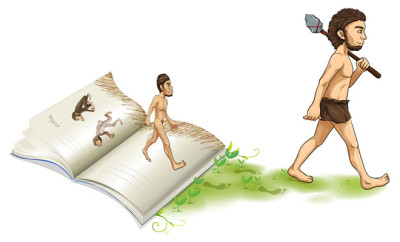
Technology of Abuse
It’s early summer, and I’m in Dupont Circle. Something’s off. People, I notice, seem to be suddenly tweeting much less lately. But I’ve got a book to finish, so I file the observation away to carefully inspect later.
It’s late summer, and I’m standing in Madison Square, frowning. Something’s wrong. Twitter feels like a deserted bar…people seem to be leaving early, too hastily, unsatisfied, rolling their eyes. Maybe, I say to myself, everyone’s just on vacation.
It’s early fall, and I’m at my favorite cafe in London. What the? Twitter’s a cemetery. Populated by ghosts. I call them the “ists”. Journalists retweeting journalists…activists retweeting activists…economists retweeting economists…once in a while a great war breaks out between this group of “ists” and that…but the thing is: no one’s listening…because everyone elseseems to have left in a hurry.
What happened to Twitter? It’s a mystery, right?
Wrong.
To understand what really happened, let’s examine what didn’t. Competition. From the new startup du jour. They are marginal contributors at best to Twitter’s sudden decline for the simple reason that people do not use them enough to attribute said decline solely to them — and the larger reason that they are not substitutes for, but complements to, micro-messages.
Twitter’s troubles are due to something deeper yet simpler, so commonplace it has become invisible. It is, in a very real sense, a victim of its own blindness.
Here’s my tiny theory, in a word. Abuse. And further, I’m going to suggest in this short essay that abuse — not making money — is the great problem tech and media have. The problem of abuse is the greatest challenge the web faces today. It is greater than censorship, regulation, or (ugh) monetization. It is a problem of staggering magnitude and epic scale, and worse still, it is expensive: it is a problem that can’t be fixed with the cheap, simple fixes beloved by tech: patching up code, pushing out updates.
To explain, let me be clear what I mean by abuse. I don’t just mean the obvious: violent threats. I also mean the endless bickering, the predictable snark, the general atmosphere of little violences that permeate the social web…and the fact that the average person can’t do anything about it.
We once glorified Twitter as a great global town square, a shining agora where everyone could come together to converse. But I’ve never been to a town square where people can shove, push, taunt, bully, shout, harass, threaten, stalk, creep, and mob you…for eavesdropping on a conversation that they weren’t a part of…to alleviate their own existential rage…at their shattered dreams…and you can’t even call a cop. What does that particular social phenomenon sound like to you? Twitter could have been a town square. But now it’s more like a drunken, heaving mosh pit. And while there are people who love to dive into mosh pits, they’re probably not the audience you want to try to build a billion dollar publicly listed company that changes the world upon.
The social web became a nasty, brutish place. And that’s because the companies that make it up simply do not not just take abuse seriously…they don’t really consider it at all. Can you remember the last time you heard the CEO of a major tech company talking about…abuse…not ads? Why not? Here’s the harsh truth: they see it as peripheral to their “business models”, a minor nuisance, certainly nothing worth investing in, for theirs is the great endeavor of…selling more ads.
They’re wrong. Nothing could be further from the truth. Abuse is killing the social web, and hence it isn’t peripheral to internet business models — it’s central. It has significant chilling effects: given a tipping point, people will simply stop using a network, and walk away…and that appears to be what’s happening with Twitter. Abuse is just as central to tech that connects people as selling beef that isn’t contaminated with salmonella is to an industry that feeds people. For the simple fact is that no one wants to spend their life being shouted at by people they’ll never meet who are angry not at them but at the world for things they barely even said to people they barely even know. I think it’s so vital, I’ll say it again, more simply: build a platform rife with abuse, and then turn a blind eye to it, treat it as a non-issue, and you’re already on tomorrow’s list of has-beens…you just don’t know it yet.
What really happens on Twitter these days? People have self-sorted into cliques, little in-groups, tribes. The purpose of tribes is to defend their beliefs, their ways, their customs, their culture — their ways of seeing the world. The digital world is separated into “ists” — it doesn’t matter what, really, economists, mens-rightists, leftists, rightists — and those “ists” place their “ism” before and above all, because it is their organizing belief, the very faith that has brought them together in the first place. Hence, to them, it’s the totem to which everyone, including you, must pay homage, and if you dare notto bow down before it…or worse still to challenge it…well, then the faithful will do what they must to defend their gods. They will declare a crusade against you.
So, step one: you say something, usually idly, that some kind of “ists” don’t like, because it challenges their organizing beliefs. Step two: they notice. Step three: it’s on. Full on guerilla info-war. Rage-mobbing, shaming, if you’re a woman, probably violent threats and more. But note. In all these endless squabbles, this perpetual outrage, this non-stop-cabaret of electronic violence…we are not fighting over anything that means anything much in the first place. Is it any wonder, then, that people are checking out of this childish game?
The engineers and MBAs and engineer-MBAs that are technoculture’s cardinals and archbishops won’t like — or probably even consider — my explanation. They will fight it tooth and nail, for the simple reason that it challenges their fundamental beliefs about the world. After all, they have organized their companies the way that they have been taught to organize their worlds. “Product” departments, “engineering” divisions, heads of “monetization”, etc.
Exactly. Nowhere in this picture do we see the issue of what their products and services truly are in the first place. Organizations such as the above are devoted to the industrial age goals of ever increasing productivity and efficiency, selling at the highest price and manufacturing at the lowest cost. But just as a meatpacking company that sold tainted beef, over and over again, that made people ill, would eventually see a decline in sales, so too a social web which is infected with the abuse will inevitably see a decline in usage. I can put that in economist-ese if you like: network effects power social technologies, but abuse is a kind of anti-network effect, not a positive one, but a negative one: I don’t benefit from you being on the network, I suffer.
Here’s the real organizational tell, the giveaway, the reveal: Q&A in technology is considered an issue of code — not conduct. Technology as a culture is so out of touch with reality doesn’t even understand what business it’s really in: not the code business (what is this, the 1980s?), but the enterprise of social interaction. That is not merely a matter of bits and bytes — but of norms and values. Hence, technology no longer understands the notion of quality in any meaningful way at all. “Quality” isn’t merely error-free code — but abuse-free interaction.
You can create the most perfect code in technological existence — but if all it’s used for is to relentlessly demean, bully, assault, torment, pick on, trample, bicker with, shout at people, well, it’s a pretty good sign that people aren’t using it for much of value. And that is a central point. When a technology is used to shrink people’s possibilities, more than to expand them, it cannot create value for them.And so people will simply tune it out, ignore it, walk away from it if they can. For the simple fact is that technologies which devalue us do not create value for us. When the social interactions that it creates are little violences, then we can say that quality has fallen below the level that people will find much benefit in it. Such interactions become toxic.
But the issue of abuse is more subtle — more invisible — and more than all the above.
Abuse does not arise in a vacuum. A healthy mind does not (need to) abuse. Abuse is created of trauma, and it is the traumatized mind which abuses. Whether to externalize, bury, escape its anger and frustration — the abused mind must purge it’s hurt in some manner, or risk being broken, split apart by it entirely.
But the troubling fact is this.
We have created an abusive society. We have normalized, regularized, and routinized abuse. We are abused at work, by the very rules, norms, and expectations of our jobs, at which we are merely “human resources”, to be utilized, allocated, depleted. We are abused at play, by industries that seek to prey on our innocence and literally “target” our human weaknessses. And now we are abused at arm’s length, through the lightwaves, by people we will never meet, for things we have barely even said. We live in a society where school shootings are the rule, not the exception, where more people will have taken antidepressants than not…and now one where nearly everyone will have been abused on the web…for a random, off-hand, throwaway comment, an idle thought, something trivial, unremarkable, meaningless.
This is an age of stagnation. Of broken dreams and thwarted expectations. What is stagnating is not just “the economy” — but us. Our possibilities and potential, the lives that we should be living. That is what is creating a great cycle of violence. Stagnation is abuse. And we are its victims. We have been cheated not just of our savings, retirements, jobs, social contracts — but of what all those free us to be: ourselves. But we are also, in our anger and despair, its enforcers. Endlessly, at least on the social web, picking on, bullying, squabbling with, decrying, outraged at, one another…for nothing that means anything at all. The abused become the abusers.
That is the great megatrend which the social web is part of: the abusive society, a great stagnation cresting into a wave of anger. Do you think I overstate my case? Then step back for a moment and consider the rise of right-wing extremist parties across the globe. It is fuelled by the resentment and frustration of stagnation. And that anger and frustration, whether it is perpetual outrage, or the passive aggression of bitter irony, is perhaps today’s defining culture feature. We abuse one another, having been abused ourselves.
And it is a very great problem indeed. Yet, it points to a necessary role that social technologies must play if they are to regain their relevance. The most successful social platforms will be those that reverse the cycle of abuse that is a product of stagnation. And help heal people’s emotional wounds in this age of broken dreams. Those wounds are deep. It was not a fall from grace that caused them. Nor was it a knife. It was a scalpel, sharper than sin, with a razor’s edge. And so the wounds will continue to bleed until they are healed. Not with bandages, nor with salves. But with grace, mercy, love, and meaning.
So here is my epitaph for Twitter. No, it isn’t really “dead”, yet. But I suppose in a way that a part of it is. Perhaps its promise. Let me put my story to you like this.
We dreamed that we created a revolution. But we did not heed the great lesson of revolution. Today’s revolutionary is tomorrow’s little tyrant. The French Revolution started as a glorious paean to people power. And it climaxed in a tidal wave of terror and bloodshed. So, too, goes every revolution too arrogant to history — including the digital revolution. Cross the line, and the inquisitors will come your way. Better then, to stay silent, than to dare the fury of the revolution itself.
We dreamed, then, like all eager revolutionaries, that we would create a new order — one where people would be freer, truer, better. We dared to upend the grey order of the power-hungry telling the powerless what to think. But we just created a new order of power-hungry fighting to command people whatnot to. Like all eager revolutionaries, we didn’t fully understand what revolution is. An unleashing of animal energies that unravels the very freedom it seeks to create, should it not place possibility above power.
Can we create a better web? Sure. But I think we have to start with humility, gratitude, reality — not arrogance, privilege, blindness. Abuse isn’t a nuisance, a triviality, a minor annoyance that “those people” have to put up with for the great privilege of having our world-changing stuff in their grubby hands. It will chill, stop, and kill networks from growing, communities from blossoming, and lives from flourishing. If your purpose is social interaction, abuse is as central to it as bacterial infection is to selling meat. Get it wrong, and you might just end up like Twitter in 2015. Not a beautiful town square, but a raging mosh pit. Good luck selling tickets to that.
Umair
London
October 2015
First published at medium.com.
Image – depositphotos







